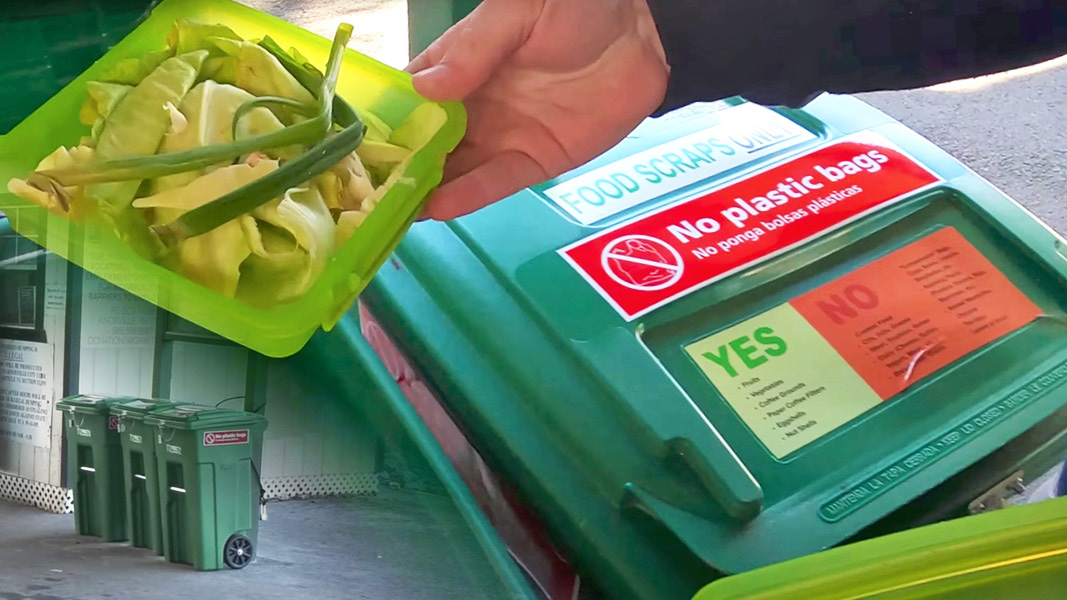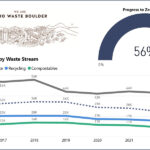Top: Images courtesy City of Knoxville, TN
The U.S. Department of Agriculture (USDA) awarded more than $9.4 million in 45 cooperative agreements that support innovative, scalable waste management plans to reduce and divert food waste from landfills. The Compost and Food Waste Reduction (CFWR) cooperative agreements, funded by the American Rescue Plan Act, are part of USDA’s broad support for urban agriculture through its Office of Urban Agriculture and Innovative Production (OUAIP). The projects will be implemented between 2023 and 2025. “The projects play important roles in building resilient, local food systems, including strong food recovery networks and food waste reduction solutions that benefit farmers and communities,” said Terry Cosby, Chief of USDA’s Natural Resources Conservation Service (NRCS), which houses OUAIP. “With an estimated 4% of U.S. greenhouse gas emissions attributable to uneaten food, local strategies and tools like these are important climate solutions.”
USDA prioritized projects that anticipate or demonstrate economic benefits, incorporate plans to make compost easily accessible to farmers and community gardeners, integrate other food waste strategies, e.g., food recovery, and collaborate with multiple partners.
The 2022 recipients include projects in 27 states and one territory. Examples include:
- City of Knoxville (TN): A comprehensive, multi-scale community composting program for residents, businesses, and nonprofits in Knoxville that will provide outlets, supplies, education, and ongoing support for three different scales of composting.
- Tucson (AZ) Unified School District: Pilot project will build infrastructure needed to provide compost to school and community gardens, improve soil quality, reduce food waste, and demonstrate the economic benefits of including food reclamation education as an integral part of a school garden and nutrition programs for students, their families and the community of Tucson and Pima County, Arizona.
- Miami-Dade (FL) County: Two-year pilot project that aims to accelerate and scale the services of three small locally owned composting companies by expanding existing service capacity by 50% over one year, obtaining a renewable 18-month pilot project permit, and developing a commercially viable compost product for use by Miami-Dade County.
- City of Frisco (TX)): Implement a community compost demonstration project to support households that do not have the resources (funds, space, or knowledge) to compost, as well as support households with an interest in composting at home with technical assistance and supplying supplemental wood chips for a healthy compost pile.
- City of Glenwood Springs (CO): Project will fund a new compost pad, educational programming to boost participation among area businesses, and create promotional materials to advertise sustainability initiatives.













